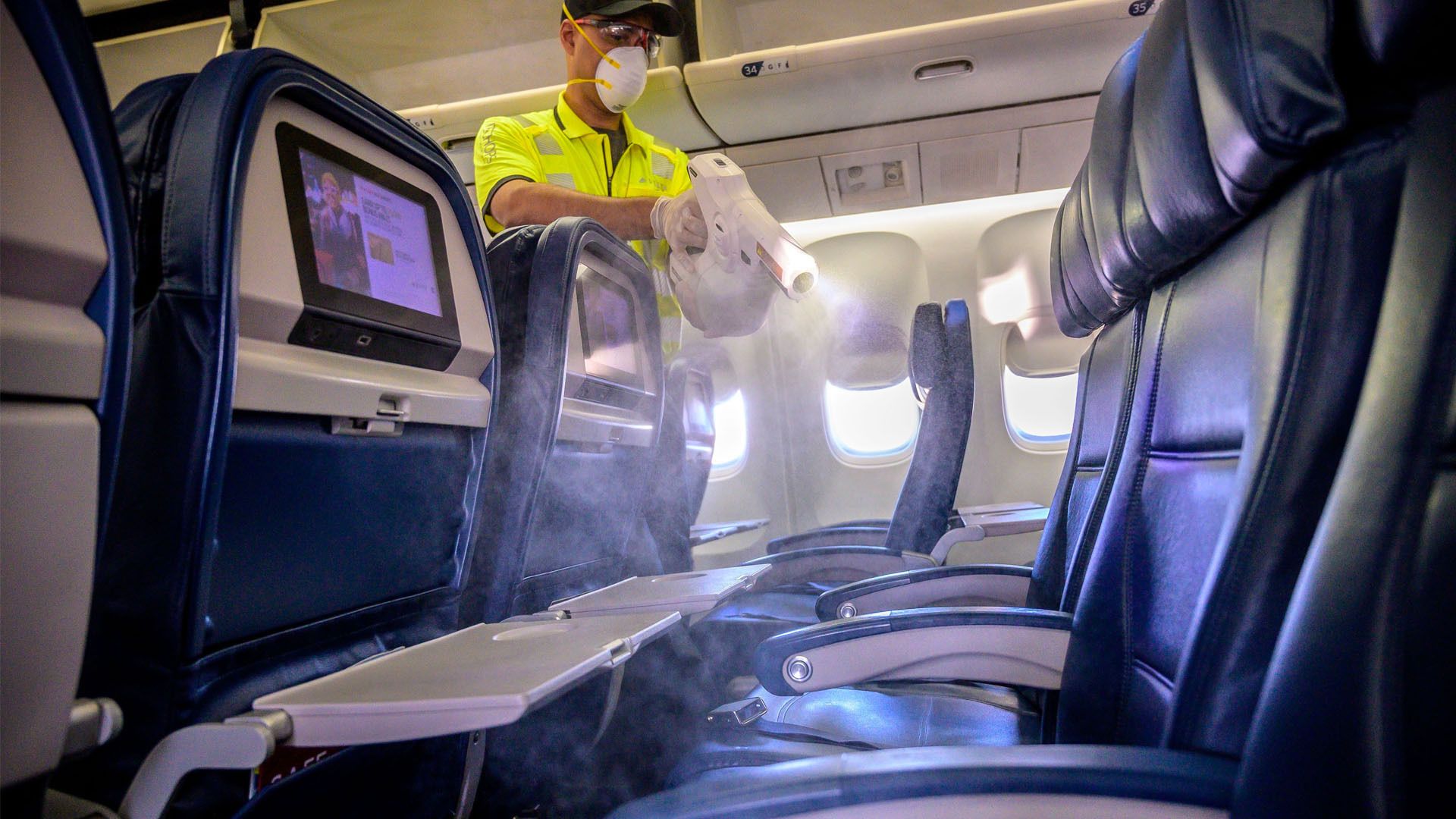Article Summary:

Electrostatic spraying of disinfectant. Photo: Delta Air Lines
Boeing and researchers at the University of Arizona say their experiment with a live virus on an unoccupied airplane proves that the cleaning methods currently used by airlines are effective in destroying the virus that causes COVID-19.
Why it matters: Deep cleaning aircraft between flights is one of many tactics the airline industry is using to try to restore public confidence in flying during the pandemic. The researchers say their study proves there is virtually no risk of transmission from touching objects including armrests, tray tables, overhead bins or lavatory handles on a plane.
- “We’re not just showing we can kill things,” University of Arizona microbiologist Charles Gerba said. “We’re showing it’s going to be safer to travel tomorrow.”
For the record: The International Air Transport Association (IATA) says that some 1.2 billion passengers have traveled worldwide so far in 2020, and there have been just 44 cases of COVID-19 reported that were linked to a flight journey. That’s one case for every 27 million travelers.
- Most of those cases occurred before masks were required of passengers and crew, IATA notes.
- Just this week, the Centers for Disease Control and Prevention updated its guidance to strongly recommend face masks on airplanes and all other forms of public transportation, as well as in stations and airports.
What they did: The researchers applied MS2 — a surrogate virus deemed not harmful to humans but more difficult to kill than SARS-CoV-2 — throughout the cabin.
- About 230 “strategic high-touch points” were targeted, including seat tray tables, armrests, seat cushions, storage bins, and inside the lavatory and galley.
- Technicians then disinfected each area with various products and technologies using both manual wiping methods and electrostatic spraying.
- The tests also measured how well Boeing’s ultraviolet wand and antimicrobial coatings worked.
What they found: The University of Arizona analyzed each area post-disinfection and found that all the recommended products, methods and technologies successfully destroyed the MS2 virus, and thus could be expected to kill the coronavirus too.
- Boeing and the University of Arizona continue to test recommended cleaning methods in a lab against SARS-CoV-2 and other similar viruses to further validate their efficacy.
Editor’s note: This story has been updated to include more information about ongoing testing of disinfectants in the laboratory.
